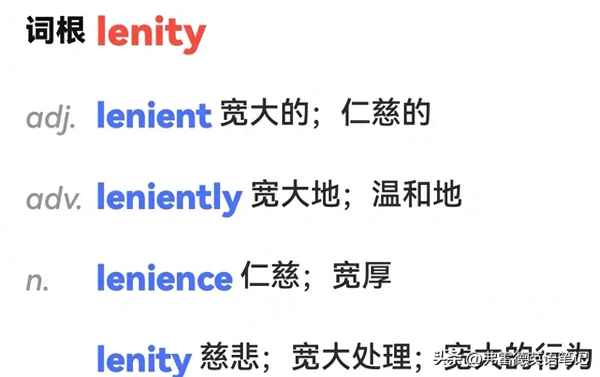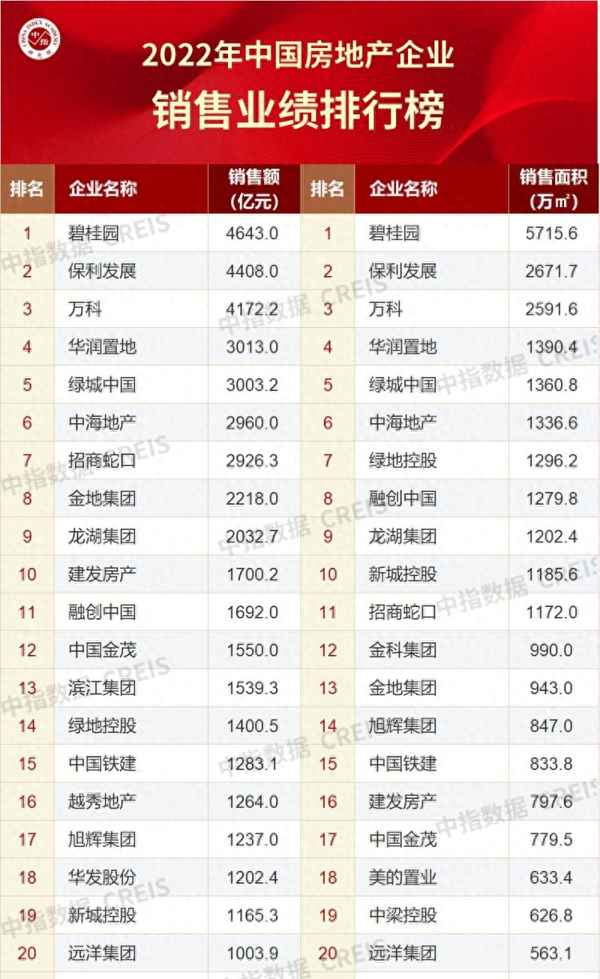焦點(diǎn)新聞?wù)谥辈ビ⒄Z(yǔ)怎么說(shuō)、新聞直播 英語(yǔ)
全網(wǎng)首發(fā)原創(chuàng) 英語(yǔ)學(xué)習(xí)筆記
英文來(lái)源:維基百科
翻譯及筆記:@ 弗雷德英語(yǔ)筆記
In social psychology, illusory superiority is a cognitive bias wherein a person overestimates their own qualities and abilities compared to other people. Illusory superiority is one of many positive illusions, relating to the self, that are evident in the study of intelligence, the effective performance of tasks and tests, and the possession of desirable personal characteristics and personality traits. Overestimation of abilities compared to an objective measure is known as the overconfidence effect.
在社會(huì)心理學(xué)中,虛幻的優(yōu)越感是一種認(rèn)知偏差,即一個(gè)人高估與其他人相比的自己的素質(zhì)和能力。虛幻的優(yōu)越感是許多與自我相關(guān)的積極幻想之一,這些幻想在智力研究、任務(wù)和測(cè)試的有效表現(xiàn)以及擁有理想的個(gè)人特征和人格特質(zhì)方面都很明顯。與客觀衡量標(biāo)準(zhǔn)相比,對(duì)能力的高估被稱(chēng)為過(guò)度自信效應(yīng)。
The term "illusory superiority" was first used by the researchers Van Yperen and Buunk, in 1991. The phenomenon is also known as the above-average effect, the superiority bias, the leniency error, the sense of relative superiority, the primus inter pares effect, and the Lake Wobegon effect, named after the fictional town where all the children are above average. The Dunning-Kruger effect is a form of illusory superiority shown by people on a task where their level of skill is low.
“虛幻的優(yōu)越感”一詞最早由研究人員范·耶佩倫(Van Yperen)和布恩克(Buunk)在 1991 年使用。這種現(xiàn)象也被稱(chēng)為高于平均水平效應(yīng)、優(yōu)勢(shì)偏差、寬容錯(cuò)誤、相對(duì)優(yōu)勢(shì)感、首屈一指效應(yīng)和沃比岡湖效應(yīng)等,以虛構(gòu)的小鎮(zhèn)命名,該小鎮(zhèn)所有孩子都比平均水平優(yōu)秀。鄧寧-克效應(yīng)也是一種虛幻的優(yōu)越感,在技能水平低的人執(zhí)行任務(wù)中有所表現(xiàn)。
A vast majority of the literature on illusory superiority originates from studies on participants in the United States. However, research that only investigates the effects in one specific population is severely limited as this may not be a true representation of human psychology. More recent research investigating self-esteem in other countries suggests that illusory superiority depends on culture. Some studies indicate that East Asians tend to underestimate their own abilities in order to improve themselves and get along with others.
關(guān)于虛幻優(yōu)越感的大量文獻(xiàn)都來(lái)自于對(duì)美國(guó)參與者的研究。然而,僅研究一個(gè)特定人群的影響是非常有限度的,因?yàn)檫@可能不是全人類(lèi)心理學(xué)的真實(shí)表現(xiàn)。最近對(duì)其他國(guó)家自尊的研究表明,虛幻的優(yōu)越感取決于文化。一些研究表明,東亞人往往低估自己的能力,以提升自己并與他人融洽相處。
Alicke and Govorun proposed the idea that, rather than individuals consciously reviewing and thinking about their own abilities, behaviors and characteristics and comparing them to those of others, it is likely that people instead have what they describe as an "automatic tendency to assimilate positively-evaluated social objects toward ideal trait conceptions". For example, if an individual evaluated themselves as honest, they would be likely to then exaggerate their characteristic towards their perceived ideal position on a scale of honesty. Importantly, Alicke noted that this ideal position is not always the top of the scale; for example, with honesty, someone who is always brutally honest may be regarded as rude—the ideal is a balance, perceived differently by different individuals.
阿利克和戈沃倫提出的觀點(diǎn)是,人們不太可能有意識(shí)地回顧和思考自己的能力、行為和特征,并將其與他人的能力、行為和特征進(jìn)行比較,而更可能的是擁有他們所描述的“將積極評(píng)價(jià)的社會(huì)對(duì)象同化到理想特征概念的自動(dòng)趨勢(shì)”。例如,如果一個(gè)人評(píng)價(jià)自己誠(chéng)實(shí),那么他們很可能會(huì)夸大自己在誠(chéng)實(shí)度量表上的特征,使其接近他們所感知的理想位置。重要的是,阿利克指出,這個(gè)理想位置并不總是量表的頂部;例如,對(duì)于誠(chéng)實(shí),總是直言不諱的人可能被認(rèn)為是粗魯?shù)摹硐胧且环N平衡,不同的人有不同的看法。
Another explanation for how the better-than-average effect works is egocentrism. This is the idea that an individual places greater importance and significance on their own abilities, characteristics, and behaviors than those of others. Egocentrism is therefore a less overtly self-serving bias. According to egocentrism, individuals will overestimate themselves in relation to others because they believe that they have an advantage that others do not have, as an individual considering their own performance and another's performance will consider their performance to be better, even when they are in fact equal. Kruger (1999) found support for the egocentrism explanation in his research involving participant ratings of their ability on easy and difficult tasks. It was found that individuals were consistent in their ratings of themselves as above the median in the tasks classified as "easy" and below the median in the tasks classified as "difficult", regardless of their actual ability. In this experiment the better-than-average effect was observed when it was suggested to participants that they would be successful, but also a worse-than-average effect was found when it was suggested that participants would be unsuccessful.
另一個(gè)對(duì)優(yōu)于平均水平效應(yīng)如何運(yùn)作的解釋是自我中心主義。這是一種觀點(diǎn),即個(gè)人對(duì)自己的能力、特征和行為的重視和意義要超過(guò)他人的能力、特征和行為。因此,自我中心主義是一種不那么明顯的利己偏差。根據(jù)自我中心主義,個(gè)人會(huì)高估自己與他人的關(guān)系,因?yàn)樗麄兿嘈抛约壕哂袆e人所不具備的優(yōu)勢(shì),因?yàn)橐粋€(gè)人在考慮自己的表現(xiàn)和另一個(gè)人的表現(xiàn)時(shí),會(huì)認(rèn)為自己的表現(xiàn)更好,即使實(shí)際上是水平相同的。克(Kruger,1999)在他涉及參與者對(duì)簡(jiǎn)單和困難任務(wù)的能力評(píng)分的研究中發(fā)現(xiàn)了對(duì)自我中心主義解釋的支持。研究發(fā)現(xiàn),個(gè)體對(duì)自己在被歸類(lèi)為“容易”的任務(wù)中的評(píng)分始終高于中位數(shù),而在被歸類(lèi)為“困難”的任務(wù)中的評(píng)分則低于中位數(shù),無(wú)論他們的實(shí)際能力如何。在這個(gè)實(shí)驗(yàn)中,當(dāng)向參與者表明他們會(huì)成功時(shí),觀察到了優(yōu)于平均水平的效應(yīng),但當(dāng)向參與者表明他們會(huì)失敗時(shí),也發(fā)現(xiàn)了低于平均水平的效應(yīng)。
Yet another explanation for the better-than-average effect is "focalism", the idea that greater significance is placed on the object that is the focus of attention. Most studies of the better-than-average effect place greater focus on the self when asking participants to make comparisons (the question will often be phrased with the self being presented before the comparison target—"compare yourself to the average person"). According to focalism this means that the individual will place greater significance on their own ability or characteristic than that of the comparison target. This also means that in theory if, in an experiment on the better-than-average effect, the questions were phrased so that the self and other were switched (e.g., "compare the average peer to yourself") the better-than-average effect should be lessened.
對(duì)于“優(yōu)于平均效應(yīng)”的另一種解釋是“錨定主義”,即人們會(huì)更加重視所關(guān)注的對(duì)象。大多數(shù)關(guān)于“優(yōu)于平均效應(yīng)”的研究在要求參與者進(jìn)行比較時(shí),會(huì)更加關(guān)注自我(問(wèn)題通常會(huì)用自我來(lái)表述,然后再提出比較的目標(biāo)——“將自己與普通人進(jìn)行比較”)。根據(jù)錨定主義,這意味著個(gè)人會(huì)更加重視自己的能力或特征,而不是比較目標(biāo)的能力或特征。這也就意味著,從理論上講,如果在關(guān)于“優(yōu)于平均效應(yīng)”的實(shí)驗(yàn)中,問(wèn)題的表述方式是將自我和他人進(jìn)行調(diào)換(例如,“將普通同齡人與自己進(jìn)行比較”),那么“優(yōu)于平均效應(yīng)”應(yīng)該會(huì)減弱。
Research into focalism has focused primarily on optimistic bias rather than the better-than-average effect. However, two studies found a decreased effect of optimistic bias when participants were asked to compare an average peer to themselves, rather than themselves to an average peer.
對(duì)錨定主義的研究主要集中在樂(lè)觀偏見(jiàn)上,而不是“優(yōu)于平均效應(yīng)”。然而,有兩項(xiàng)研究發(fā)現(xiàn),當(dāng)參與者被要求將普通同齡人與自己進(jìn)行比較,而不是將自己與普通同齡人進(jìn)行比較時(shí),樂(lè)觀偏見(jiàn)的影響會(huì)減少。
Windschitl, Kruger & Simms (2003) have conducted research into focalism, focusing specifically on the better-than-average effect, and found that asking participants to estimate their ability and likelihood of success in a task produced results of decreased estimations when they were asked about others' chances of success rather than their own.
溫施特爾、克和西姆斯(2003)對(duì)錨定主義進(jìn)行了研究,特別關(guān)注了“優(yōu)于平均效應(yīng)”,發(fā)現(xiàn)當(dāng)要求參與者估計(jì)自己在計(jì)劃一項(xiàng)任務(wù)中的能力和成功的可能性時(shí),如果他們被問(wèn)到的是其他人成功的機(jī)會(huì),而不是他們自己的,那么估計(jì)結(jié)果會(huì)降低。
A 2012 Psychological Bulletin suggests that illusory superiority, as well as other biases, can be explained by an information-theoretic generative mechanism that assumes observation (a noisy conversion of objective evidence) into subjective estimates (judgment). The study suggests that the underlying cognitive mechanism is saimilar to the noisy mixing of memories that cause the conservatism bias or overconfidence: re-adjustment of estimates of our own performance after our own performance are adjusted differently than the re-adjustments regarding estimates of others' performances. Estimates of the scores of others are even more conservative (more influenced by the previous expectation) than our estimates of our own performance (more influenced by the new evidence received after giving the test). The difference in the conservative bias of both estimates (conservative estimate of our own performance, and even more conservative estimate of the performance of others) is enough to create illusory superiority.
2012 年的一份《心理公報(bào)》指出,虛幻的優(yōu)越感以及其他偏差可以用一種信息理論的生成機(jī)制來(lái)解釋?zhuān)摍C(jī)制假定觀察(對(duì)客觀證據(jù)的嘈雜轉(zhuǎn)換)轉(zhuǎn)化為主觀估計(jì)(判斷)。該研究表明,潛在的認(rèn)知機(jī)制與導(dǎo)致保守偏差或過(guò)度自信的記憶嘈雜混合類(lèi)似:在自己的表現(xiàn)被調(diào)整后,對(duì)自己表現(xiàn)的估計(jì)的重新調(diào)整與對(duì)他人表現(xiàn)的估計(jì)的重新調(diào)整不同。對(duì)他人分?jǐn)?shù)的估計(jì)甚至更加保守(受先前預(yù)期的影響更大),而對(duì)自己表現(xiàn)的估計(jì)(受考試后收到的新證據(jù)的影響更大)。這兩種估計(jì)的保守偏差的差異(對(duì)自己表現(xiàn)的保守估計(jì),以及對(duì)他人表現(xiàn)的更保守的估計(jì))足以產(chǎn)生虛幻的優(yōu)越感。
Since mental noise is a sufficient explanation that is much simpler and more straightforward than any other explanation involving heuristics, behavior, or social interaction, the Occam's razor principle argues in its favor as the underlying generative mechanism (it is the hypothesis which makes the fewest assumptions).
由于心理噪聲是一種充分的解釋?zhuān)热魏紊婕皢l(fā)式、行為或社會(huì)互動(dòng)的其他解釋都要簡(jiǎn)單和直接得多,因此奧卡姆剃刀原理認(rèn)為它是潛在的生成機(jī)制(它是假設(shè)最少的假設(shè))。
Selective recruitment is the notion that an individual selects their own strengths and the other's weaknesses when making peer comparisons, in order that they appear better on the whole. This theory was first tested by Weinstein (1980); however, this was in an experiment relating to optimistic bias, rather than the better-than-average effect. The study involved participants rating certain behaviors as likely to increase or decrease the chance of a series of life events happening to them. It was found that individuals showed less optimistic bias when they were allowed to see others' answers.
選擇性招募是指?jìng)€(gè)人在與同伴做比較時(shí),會(huì)選擇自己的優(yōu)勢(shì)和他人的弱點(diǎn),以便達(dá)到更好的整體效果。這一理論首先由溫斯坦(1980)進(jìn)行了測(cè)試;然而,這是在一個(gè)與樂(lè)觀偏差有關(guān)的實(shí)驗(yàn)中實(shí)施的,而并非“優(yōu)于平均效應(yīng)”的實(shí)驗(yàn)。該研究要求參與者對(duì)某些行為進(jìn)行評(píng)分,這些行為可能會(huì)增加或減少一系列生活事件發(fā)生在他們身上的機(jī)會(huì)。研究發(fā)現(xiàn),當(dāng)允許參與者看到他人的答案時(shí),個(gè)體表現(xiàn)出的樂(lè)觀偏差較少。
Perloff and Fetzer (1986) suggested that when making peer comparisons on a specific characteristic, an individual chooses a comparison target—the peer to whom he is being compared—with lower abilities. To test this theory, Perloff and Fetzer asked participants to compare themselves to specific comparison targets like a close friend, and found that illusory superiority decreased when they were told to envision a specific person rather than vague constructs like "the average peer". However, these results are not completely reliable and could be affected by the fact that individuals like their close friends more than an "average peer" and may as a result rate their friend as being higher than average, therefore the friend would not be an objective comparison target.
佩洛夫和費(fèi)澤(1986)提出,在對(duì)特定特征進(jìn)行同伴比較時(shí),個(gè)人會(huì)選擇能力較低的比較目標(biāo)——與之進(jìn)行比較的同伴。為了驗(yàn)證這一理論,佩洛夫和費(fèi)澤要求參與者將自己與特定的比較目標(biāo)(如親密朋友)進(jìn)行比較,發(fā)現(xiàn)當(dāng)他們被告知要想象一個(gè)特定的人而不是像“普通同伴”這樣模糊的概念時(shí),虛幻的優(yōu)越感會(huì)降低。然而,這些結(jié)果并不完全可靠,可能會(huì)受到這樣一個(gè)事實(shí)的影響:與相比“普通同伴”參與者更喜歡他們的親密朋友,因此可能會(huì)將他們的朋友評(píng)價(jià)為高于平均水平,所以朋友并非客觀的比較目標(biāo)。
This idea, put forward by Giladi and Klar, suggests that when making comparisons any single member of a group will tend to evaluate themselves to rank above that group's statistical mean performance level or the median performance level of its members. For example, if an individual is asked to assess their own skill at driving compared to the rest of the group, they are likely to rate themself as an above-average driver. Furthermore, the majority of the group is likely to rate themselves as above average. Research has found this effect in many different areas of human performance and has even generalized it beyond individuals' attempts to draw comparisons involving themselves. Findings of this research therefore suggest that rather than individuals evaluating themselves as above average in a self-serving manner, the better-than-average effect is actually due to a general tendency to evaluate any single person or object as better than average.
吉爾阿迪和克拉爾提出的這一觀點(diǎn)表明,在進(jìn)行比較時(shí),群體中的任何單個(gè)成員都傾向于評(píng)估自己的排名高于該群體的統(tǒng)計(jì)平均績(jī)效水平或其成員的中位數(shù)績(jī)效水平。例如,如果要求個(gè)人評(píng)估自己與群體其他成員相比的駕駛技能,他們可能會(huì)將自己評(píng)為高于平均水平的司機(jī)。此外,大多數(shù)群體成員可能會(huì)認(rèn)為自己高于平均水平。研究發(fā)現(xiàn),這種效應(yīng)在人類(lèi)表現(xiàn)的許多不同領(lǐng)域都有體現(xiàn),甚至已經(jīng)超越了個(gè)人試圖進(jìn)行涉及自身比較的范疇。因此,這項(xiàng)研究的結(jié)果表明,不是個(gè)人以利己的方式評(píng)價(jià)自己高于平均水平,“優(yōu)于平均效應(yīng)”實(shí)際上是由于普遍傾向于評(píng)價(jià)任何單個(gè)的人或物體優(yōu)于平均水平。
The better-than-average effect may not have wholly social origins—judgments about inanimate objects suffer similar distortions.
“優(yōu)于平均效應(yīng)”可能并不完全源于社會(huì)因素——對(duì)無(wú)生命物體的判斷也會(huì)受到類(lèi)似的畸變。
The degree to which people view themselves as more desirable than the average person links to reduced activation in their orbitofrontal cortex and dorsal anterior cingulate cortex. This is suggested to link to the role of these areas in processing "cognitive control".
人們認(rèn)為自己比一般人更受歡迎的程度與他們的眶額葉皮層和背側(cè)前扣帶回皮層的激活減少有關(guān)。這表明這些區(qū)域與“認(rèn)知控制”的處理有關(guān)。
Illusory superiority has been found in individuals' comparisons of themselves with others in a variety of aspects of life, including performance in academic circumstances (such as class performance, exams and overall intelligence), in working environments (for example in job performance), and in social settings (for example in estimating one's popularity, or the extent to which one possesses desirable personality traits, such as honesty or confidence), and in everyday abilities requiring particular skill.
研究者在個(gè)人與他人在生活的各個(gè)方面進(jìn)行比較時(shí),都發(fā)現(xiàn)了虛幻的優(yōu)越感,包括在學(xué)術(shù)環(huán)境中的表現(xiàn)(如課堂表現(xiàn)、考試和整體智力)、工作環(huán)境(例如工作表現(xiàn))、社會(huì)環(huán)境(例如估計(jì)自己的受歡迎程度,或自己擁有理想人格特質(zhì)的程度,如誠(chéng)實(shí)或自信),以及在需要特定技能的日常能力方面。
For illusory superiority to be demonstrated by social comparison, two logical hurdles have to be overcome. One is the ambiguity of the word "average". It is logically possible for nearly all of the set to be above the mean if the distribution of abilities is highly skewed. For example, the mean number of legs per human being is slightly lower than two because some people have fewer than two and almost none have more. Hence experiments usually compare subjects to the median of the peer group, since by definition it is impossible for a majority to exceed the median.
要通過(guò)社會(huì)比較來(lái)展示虛幻的優(yōu)越感,必須克服兩個(gè)邏輯障礙。一個(gè)是“平均”一詞的模糊性。如果能力分布高度傾斜,那么在邏輯上,幾乎所有的集合都可能高于平均值。例如,人類(lèi)平均每條腿的數(shù)量略低于兩條,因?yàn)橛行┤说耐壬儆趦蓷l,而且?guī)缀鯖](méi)有人的腿多于兩條。因此,實(shí)驗(yàn)通常將受試者與同伴群體的中位數(shù)進(jìn)行比較,因?yàn)楦鶕?jù)定義,大多數(shù)人不可能超過(guò)中位數(shù)。
A further problem in inferring inconsistency is that subjects might interpret the question in different ways, so it is logically possible that a majority of them are, for example, more generous than the rest of the group each on "their own understanding" of generosity. This interpretation is confirmed by experiments which varied the amount of interpretive freedom. As subjects evaluated themselves on a specific, well-defined attribute, illusory superiority remains.
推斷不一致的另一個(gè)問(wèn)題是,受試者可能會(huì)以不同的方式來(lái)解釋問(wèn)題,因此從邏輯上講,例如,他們中的大多數(shù)人可能在“他們自己對(duì)慷慨的理解”上比其他群體更慷慨。這種解釋通過(guò)改變解釋自由程度的實(shí)驗(yàn)得到了證實(shí)。當(dāng)受試者對(duì)一個(gè)特定的、明確的屬性進(jìn)行自我評(píng)估時(shí),虛幻的優(yōu)越感仍然存在。
In a survey of faculty at the University of Nebraska–Lincoln, 68% rated themselves in the top 25% for teaching ability, and 94% rated themselves as above average.
在內(nèi)布拉斯加-林肯大學(xué)的一項(xiàng)教師調(diào)查中,68%的人認(rèn)為自己的教學(xué)能力處于前 25%,94%的人認(rèn)為自己高于平均水平。
In a similar survey, 87% of Master of Business Administration students at Stanford University rated their academic performance as above the median.
在一項(xiàng)類(lèi)似的調(diào)查中,斯坦福大學(xué)的 87%的工商管理碩士學(xué)生將自己的學(xué)習(xí)成績(jī)?cè)u(píng)為中位數(shù)以上。
Illusory superiority has also explained phenomena such as the large amount of stock market trading (as each trader thinks they are the best, and most likely to succeed), and the number of lawsuits that go to trial (because, due to illusory superiority, many lawyers have an inflated belief that they will win a case).
虛幻的優(yōu)越感也解釋了一些現(xiàn)象,比如為什么存在大量的股票市場(chǎng)交易(因?yàn)槊總€(gè)交易者都認(rèn)為自己是最好的,最有可能成功),以及進(jìn)入審判的訴訟數(shù)量(因?yàn)椋捎谔摶玫膬?yōu)越感,許多律師對(duì)自己能贏得一個(gè)案件抱有夸大的信念)。
Main article: Dunning–Kruger effect 主要文章:鄧寧-克效應(yīng)
In Kruger and Dunning's experiments, participants were given specific tasks (such as solving logic problems, analyzing grammar questions, and determining whether jokes were funny), and were asked to evaluate their performance on these tasks relative to the rest of the group, enabling a direct comparison of their actual and perceived performance.
在克和鄧寧的實(shí)驗(yàn)中,參與者被分配特定的任務(wù)(如解決邏輯問(wèn)題、分析語(yǔ)法問(wèn)題和判斷笑話是否有趣),并被要求根據(jù)其他組的表現(xiàn)來(lái)評(píng)估自己在這些任務(wù)上的表現(xiàn),從而能夠直接比較他們的實(shí)際表現(xiàn)和感知表現(xiàn)。
Results were divided into four groups depending on actual performance and it was found that all four groups evaluated their performance as above average, meaning that the lowest-scoring group (the bottom 25%) showed a very large illusory superiority bias. The researchers attributed this to the fact that the individuals who were worst at performing the tasks were also worst at recognizing skill in those tasks. This was supported by the fact that, given training, the worst subjects improved their estimate of their rank as well as getting better at the tasks. The paper, titled "Unskilled and Unaware of It: How Difficulties in Recognizing One's Own Incompetence Lead to Inflated Self-Assessments", won an Ig Nobel Prize in 2000.
結(jié)果根據(jù)實(shí)際表現(xiàn)分為四組,發(fā)現(xiàn)所有四組都評(píng)價(jià)自己的表現(xiàn)高于平均水平,這意味著得分最低的組(排名最后的 25%)表現(xiàn)出非常大的虛幻優(yōu)越感偏差。研究人員將這歸因于那些最不擅長(zhǎng)執(zhí)行任務(wù)的人也最不擅長(zhǎng)識(shí)別這些任務(wù)中的技能。這一點(diǎn)得到了這樣一個(gè)事實(shí)的支持:經(jīng)過(guò)培訓(xùn),最差的受試者提高了對(duì)自己排名的估計(jì),同時(shí)也提高了完成任務(wù)的能力。這篇題為“不熟練且不知道:難以認(rèn)識(shí)到自己的無(wú)能如何導(dǎo)致夸大的自我評(píng)估”的論文在 2000 年獲得了搞笑諾貝爾獎(jiǎng)。
In 2003 Dunning and Joyce Ehrlinger, also of Cornell University, published a study that detailed a shift in people's views of themselves influenced by external cues. Cornell undergraduates were given tests of their knowledge of geography, some intended to positively affect their self-views, others intended to affect them negatively. They were then asked to rate their performance, and those given the positive tests reported significantly better performance than those given the negative.
2003 年,康奈爾大學(xué)的鄧寧和喬伊斯·埃爾林格發(fā)表了一項(xiàng)研究,詳細(xì)描述了人們對(duì)外界線索影響下自身觀點(diǎn)的轉(zhuǎn)變。康奈爾大學(xué)的本科生接受了地理知識(shí)測(cè)試,一些測(cè)試旨在積極影響他們的自我觀點(diǎn),另一些則旨在產(chǎn)生負(fù)面影響。然后要求他們對(duì)自己的表現(xiàn)進(jìn)行評(píng)分,那些接受積極測(cè)試的人報(bào)告的表現(xiàn)明顯好于那些接受消極測(cè)試的人。
Daniel Ames and Lara Kammrath extended this work to sensitivity to others, and the subjects' perception of how sensitive they were. Research by Burson, Larrick, and Klayman suggests that the effect is not so obvious and may be due to noise and bias levels.
丹尼爾·埃姆斯和勞拉·卡姆拉斯將這項(xiàng)工作擴(kuò)展到對(duì)他人的敏感性,以及受試者對(duì)自己敏感程度的感知。伯森、拉里克和克萊曼的研究表明,這種影響并不那么明顯,可能是由于受到噪音和偏差水平的影響。
Dunning, Kruger, and coauthors' latest paper[when?] on this subject comes to qualitatively similar conclusions[clarification needed] after making some attempt to test alternative explanations.
鄧寧、克和共同作者關(guān)于這個(gè)主題的最新論文[時(shí)間不詳]在對(duì)其他解釋進(jìn)行了一些嘗試測(cè)試后,得出了定性相似的結(jié)論[需要澄清]。
Svenson (1981) surveyed 161 students in Sweden and the United States, asking them to compare their driving skills and safety to other people's. For driving skills, 93% of the U.S. sample and 69% of the Swedish sample put themselves in the top 50%; for safety, 88% of the U.S. and 77% of the Swedish put themselves in the top 50%.
斯文森(1981)調(diào)查了 161 名瑞典和美國(guó)的學(xué)生,要求他們將自己的駕駛技術(shù)及駕駛安全與其他人進(jìn)行比較。在駕駛技術(shù)方面,93%的美國(guó)樣本和 69%的瑞典樣本將自己排在前 50%;在安全方面,88%的美國(guó)人和 77%的瑞典人將自己排在前 50%。
McCormick, Walkey and Green (1986) found similar results in their study, asking 178 participants to evaluate their position on eight different dimensions of driving skills (examples include the "dangerous–safe" dimension and the "considerate–inconsiderate" dimension). Only a small minority rated themselves as below the median, and when all eight dimensions were considered together it was found that almost 80% of participants had evaluated themselves as being an above-average driver.
麥考密克、沃爾基和格林(1986)在他們的研究中發(fā)現(xiàn)了類(lèi)似的結(jié)果,他們要求 178 名參與者對(duì)自己在駕駛技能的八個(gè)不同維度上的排名進(jìn)行評(píng)估(例如,“危險(xiǎn)-安全”維度和“體貼-不體貼”維度)。只有一小部分人將自己評(píng)價(jià)為低于中位數(shù),當(dāng)考慮所有八個(gè)維度時(shí),發(fā)現(xiàn)幾乎 80%的參與者將自己評(píng)價(jià)為高于平均水平的司機(jī)。
One commercial survey showed that 36% of drivers believed they were an above-average driver while texting or sending emails compared to other drivers; 44% considered themselves average, and 18% below average.
一項(xiàng)商業(yè)調(diào)查顯示,36%的司機(jī)認(rèn)為與其他司機(jī)相比,自己在發(fā)短信或發(fā)送電子郵件時(shí)是一名高于平均水平的司機(jī);44%的人認(rèn)為自己一般,18%的人認(rèn)為自己低于平均水平。
Illusory superiority was found in a self-report study of health behaviors (Hoorens & Harris, 1998) that asked participants to estimate how often they and their peers carried out healthy and unhealthy behaviors. Participants reported that they carried out healthy behaviors more often than the average peer, and unhealthy behaviors less often. The findings held even for expected future behavior.
在一項(xiàng)關(guān)于健康行為的自我報(bào)告研究中發(fā)現(xiàn)了虛幻的優(yōu)越感(Hoorens & Harris, 1998),該研究要求參與者估計(jì)他們和自己的同伴進(jìn)行健康和不健康行為的頻率。參與者報(bào)告說(shuō),他們比一般的同伴更經(jīng)常地進(jìn)行健康行為,而不健康行為則更少。即使是對(duì)預(yù)期的未來(lái)行為,這一發(fā)現(xiàn)也成立。
Main article: Bias blind spot
主要文章:偏見(jiàn)盲點(diǎn)
Subjects describe themselves in positive terms compared to other people, and this includes describing themselves as less susceptible to bias than other people. This effect is called the "bias blind spot" and has been demonstrated independently[citation needed].
受試者用積極的術(shù)語(yǔ)來(lái)描述自己與其他人相比,這包括描述自己比其他人更不容易受到偏見(jiàn)的影響。這種效應(yīng)被稱(chēng)為“偏見(jiàn)盲點(diǎn)”,已經(jīng)被獨(dú)立證明[此段文字需要引用]。
One of the main effects of illusory superiority in IQ is the "Downing effect". This describes the tendency of people with a below-average IQ to overestimate their IQ, and of people with an above-average IQ to underestimate their IQ (similar trend to the Dunning-Kruger effect). This tendency was first observed by C. L. Downing, who conducted the first cross-cultural studies on perceived intelligence. His studies also showed that the ability to accurately estimate other people's IQs was proportional to one's own IQ (i.e., the lower the IQ, the less capable of accurately appraising other people's IQs). People with high IQs are better overall at appraising other people's IQs, but when asked about the IQs of people with similar IQs as themselves, they are likely to rate them as having higher IQs.[source needed]
虛幻優(yōu)越感在智商方面的主要影響之一是“唐寧效應(yīng)”。這描述了智商低于平均水平的人高估自己的智商,而智商高于平均水平的人低估自己的智商的趨勢(shì)(與鄧寧-克效應(yīng)類(lèi)似)。這種趨勢(shì)最早是由 C.L.唐寧觀察到的,他進(jìn)行了第一項(xiàng)關(guān)于感知智力的跨文化研究。他的研究還表明,準(zhǔn)確估計(jì)他人智商的能力與自己的智商成正比(即,智商越低,準(zhǔn)確評(píng)估他人智商的能力就越低)。高智商的人總體上更善于評(píng)估他人的智商,但當(dāng)被問(wèn)及與自己智商相似的人的智商時(shí),他們可能會(huì)評(píng)價(jià)他們有更高的智商。[需要備注來(lái)源]
The disparity between actual IQ and perceived IQ has also been noted between genders by British psychologist Adrian Fudddnham, in whose work there was a suggestion that, on average, men are more likely to overestimate their intelligence by 5 points, while women are more likely to underestimate their IQ by a similar margin.
英國(guó)心理學(xué)家阿德里安·福登漢姆也注意到了實(shí)際智商和感知智商之間的性別差異,在他的研究中,有跡象表明,平均而言,男性更有可能高估自己的智力 5 分,而女性更有可能低估自己的智商類(lèi)似的幅度。
Illusory superiority has been found in studies comparing memory self-reports, such as Schmidt, Berg & Deelman's research in older adults. This study involved participants aged between 46 and 89 years of age comparing their own memory to that of peers of the same age group, 25-year-olds and their own memory at age 25. This research showed that participants exhibited illusory superiority when comparing themselves to both peers and younger adults, however the researchers asserted that these judgments were only slightly related to age.
在比較記憶自我報(bào)告的研究中也發(fā)現(xiàn)了虛幻的優(yōu)越感,例如Schmidt、Berg 和 Deelman 對(duì)老年人的研究。這項(xiàng)研究涉及 46 至 89 歲的參與者將自己的記憶與同齡人群、25 歲的年輕人以及自己 25 歲時(shí)的記憶進(jìn)行比較。這項(xiàng)研究表明,參與者在與同齡人和年輕人比較時(shí)都表現(xiàn)出了虛幻的優(yōu)越感,然而研究人員斷言這些判斷與年齡只有輕微的關(guān)系。
In Zuckerman and Jost's study, participants were given detailed questionnaires about their friendships and asked to assess their own popularity. Using social network analysis, they were able to show that participants generally had exaggerated perceptions of their own popularity, especially in comparison to their own friends.
在祖克曼和喬斯特的研究中,參與者被給予關(guān)于他們友誼的詳細(xì)問(wèn)卷,并要求評(píng)估自己的受歡迎程度。通過(guò)社會(huì)網(wǎng)絡(luò)分析,他們能夠表明參與者通常對(duì)自己的受歡迎程度有夸大的看法,尤其是與他們自己的朋友相比。
Despite the fact that most people in the study believed that they had more friends than their friends, a 1991 study by sociologist Scott L. Feld on the friendship paradox shows that on average, due to sampling bias, most people have fewer friends than their friends have.
盡管研究中的大多數(shù)人認(rèn)為自己的朋友比他們的朋友多,但社會(huì)學(xué)家斯科特·L·費(fèi)爾德在 1991 年關(guān)于友誼悖論的研究表明,由于抽樣偏差,平均而言,大多數(shù)人的朋友比他們的朋友少。
Researchers have also found illusory superiority in relationship satisfaction. For example, one study found that participants perceived their own relationships as better than others' relationships on average, but thought that the majority of people were happy with their relationships. It also found evidence that the higher the participants rated their own relationship happiness, the more superior they believed their relationship was—illusory superiority also increased their own relationship satisfaction. This effect was pronounced in men, whose satisfaction was especially related to the perception that one's own relationship was superior as well as to the assumption that few others were unhappy in their relationships. On the other hand, women's satisfaction was particularly related to the assumption that most people were happy with their relationship. One study[citation needed] found that participants became defensive when their spouse or partner were perceived by others to be more successful in any aspect of their life, and had the tendency to exaggerate their success and understate their spouse or partner's success.
研究人員還發(fā)現(xiàn)了關(guān)系滿(mǎn)意度中的虛幻優(yōu)越感。例如,一項(xiàng)研究發(fā)現(xiàn),參與者認(rèn)為自己的關(guān)系比其他人相比關(guān)系更好,但是又認(rèn)為大多數(shù)人對(duì)自己的關(guān)系感到滿(mǎn)意。研究還發(fā)現(xiàn)證據(jù)表明,參與者對(duì)自己關(guān)系幸福的評(píng)價(jià)越高,他們就越認(rèn)為自己的關(guān)系優(yōu)越——虛幻的優(yōu)越感也增加了他們自己的關(guān)系滿(mǎn)意度。這種影響在男性中更為明顯,他們的滿(mǎn)意度尤其與認(rèn)為自己的關(guān)系優(yōu)越以及認(rèn)為很少有其他人對(duì)他們的關(guān)系不滿(mǎn)意有關(guān)。另一方面,女性的滿(mǎn)意度尤其與認(rèn)為大多數(shù)人對(duì)自己的關(guān)系感到滿(mǎn)意有關(guān)。一項(xiàng)研究[需要備注引用]發(fā)現(xiàn),當(dāng)他們的配偶或伴侶被其他人認(rèn)為在生活的任何方面都更成功時(shí),參與者會(huì)變得具有防御性,并有夸大自己成功和低估配偶或伴侶成功的傾向。
One of the first studies that found illusory superiority was carried out in the United States by the College Board in 1976. A survey was attached to the SAT exams (taken by one million students annually), asking the students to rate themselves relative to the median of the sample (rather than the average peer) on a number of vague positive characteristics. In ratings of leadership, 70% of the students put themselves above the median. In ability to get on well with others, 85% put themselves above the median; 25% rated themselves in the top 1%.
最早發(fā)現(xiàn)虛幻優(yōu)越感的研究之一是由美國(guó)大學(xué)理事會(huì)在 1976 年進(jìn)行的。在 SAT 考試(每年有 100 萬(wàn)學(xué)生參加)中附上了一項(xiàng)調(diào)查,要求學(xué)生根據(jù)樣本的中位數(shù)(而不是普通同齡人)對(duì)自己的一系列模糊的積極特征進(jìn)行評(píng)分。在領(lǐng)導(dǎo)力方面,70%的學(xué)生認(rèn)為自己高于中位數(shù)。在與他人相處的能力方面,85%的學(xué)生認(rèn)為自己高于中位數(shù);25%的人將自己評(píng)為前 1%。
A 2002 study on illusory superiority in social settings, with participants comparing themselves to friends and other peers on positive characteristics (such as punctuality and sensitivity) and negative characteristics (such as naivety or inconsistency). This study found that participants rated themselves more favorably than their friends, but rated their friends more favorably than other peers (but there were several moderating factors).
2002 年一項(xiàng)關(guān)于社會(huì)環(huán)境中虛幻優(yōu)越感的研究,要求參與者將自己與朋友和其他同齡人在積極特征(如守時(shí)和敏感)和消極特征(如天真或不一致)上進(jìn)行比較。這項(xiàng)研究發(fā)現(xiàn),參與者對(duì)自己的評(píng)價(jià)比他們的朋友的更有利,但對(duì)他們的朋友的評(píng)價(jià)比其他同齡人更有利(但有幾個(gè)調(diào)節(jié)因素)。
Research by Perloff and Fetzer, Brown, and Henri Tajfel and John C. Turner also found friends being rated higher than other peers. Tajfel and Turner attributed this to an "ingroup bias" and suggested that this was motivated by the individual's desire for a "positive social identity".
佩洛夫和費(fèi)策、布朗以及亨利· Tajfel 和約翰·C·特納的研究也發(fā)現(xiàn)朋友的評(píng)價(jià)比其他同齡人高。 Tajfel 和 Turner 將此歸因于“內(nèi)群體偏見(jiàn)”,并認(rèn)為這是由于個(gè)人對(duì)“積極的社會(huì)認(rèn)同”的渴望。
While illusory superiority has been found to be somewhat self-serving, this does not mean that it will predictably occur—it is not constant. The strength of the effect is moderated by many factors, the main examples of which have been summarized by Alicke and Govorun (2005).
雖然虛幻的優(yōu)越感被發(fā)現(xiàn)有點(diǎn)自私自利,但這并不意味著它會(huì)預(yù)期發(fā)生——它不是恒定的。這種影響的強(qiáng)度受到許多因素的調(diào)節(jié),Alicke 和 Govorun(2005)總結(jié)了主要例證。
This is a phenomenon that Alicke and Govorun have described as "the nature of the judgement dimension" and refers to how subjective (abstract) or objective (concrete) the ability or characteristic being evaluated is. Research by Sedikides & Strube (1997) has found that people are more self-serving (the effect of illusory superiority is stronger) when the event in question is more open to interpretation, for example social constructs such as popularity and attractiveness are more interpretable than characteristics such as intelligence and physical ability. This has been partly attributed also to the need for a believable self-view.
這是 Alicke 和 Govorun 所描述的“判斷維度的性質(zhì)”的一種現(xiàn)象,指的是正在評(píng)估的能力或特征是多么主觀(抽象)或客觀(具體)。Sedikides & Strube(1997)的研究發(fā)現(xiàn),當(dāng)所討論的事件更容易解釋時(shí),人們更自私(虛幻優(yōu)越感的影響更強(qiáng)),例如,像受歡迎程度和吸引力這樣的社會(huì)結(jié)構(gòu)比智力和身體能力等特征更具解釋性。這在一定程度上也歸因于對(duì)可信自我觀點(diǎn)的需求。
The idea that ambiguity moderates illusory superiority has empirical research support from a study involving two conditions: in one, participants were given criteria for assessing a trait as ambiguous or unambiguous, and in the other participants were free to assess the traits according to their own criteria. It was found that the effect of illusory superiority was greater in the condition where participants were free to assess the traits.
模糊性調(diào)節(jié)虛幻優(yōu)越感的觀點(diǎn)得到了一項(xiàng)涉及兩種情況的實(shí)證研究的支持:在一種情況下,向參與者提供了評(píng)估模糊或明確特質(zhì)的標(biāo)準(zhǔn),而在另一種情況下,參與者可以根據(jù)自己的標(biāo)準(zhǔn)自由評(píng)估特質(zhì)。研究發(fā)現(xiàn),在參與者可以自由評(píng)估特質(zhì)的情況下,虛幻優(yōu)越感的影響更大。
The effects of illusory superiority have also been found to be strongest when people rate themselves on abilities at which they are totally incompetent. These subjects have the greatest disparity between their actual performance (at the low end of the distribution) and their self-rating (placing themselves above average). This Dunning–Kruger effect is interpreted as a lack of metacognitive ability to recognize their own incompetence.
當(dāng)人們對(duì)自己完全不勝任的能力進(jìn)行評(píng)分時(shí),也發(fā)現(xiàn)虛幻優(yōu)越感的影響最強(qiáng)。這些受試者的實(shí)際表現(xiàn)(處于分布的低端)與他們的自我評(píng)價(jià)(將自己置于平均水平之上)之間存在最大的差距。這種鄧寧-克效應(yīng)被解釋為缺乏認(rèn)識(shí)自己無(wú)能的元認(rèn)知能力。
The method used in research into illusory superiority has been found to have an implication on the strength of the effect found. Most studies into illusory superiority involve a comparison between an individual and an average peer, of which there are two methods: direct comparison and indirect comparison. A direct comparison—which is more commonly used—involves the participant rating themselves and the average peer on the same scale, from "below average" to "above average" and results in participants being far more self-serving. Researchers have suggested that this occurs due to the closer comparison between the individual and the average peer, however use of this method means that it is impossible to know whether a participant has overestimated themselves, underestimated the average peer, or both.
研究者發(fā)現(xiàn)研究虛幻優(yōu)越感時(shí)使用的方法對(duì)所發(fā)現(xiàn)的效果強(qiáng)度有影響。大多數(shù)對(duì)虛幻優(yōu)越感的研究都涉及到個(gè)人與普通同齡人的比較,有兩種方法:直接比較和間接比較。直接比較——更常用——涉及到參與者對(duì)自己和普通同齡人在同一尺度上的評(píng)分,從“低于平均水平”到“高于平均水平”,結(jié)果是參與者更加自私。研究人員認(rèn)為,這是由于個(gè)人與普通同齡人之間的比較更接近,但使用這種方法意味著不可能知道參與者是高估了自己,還是低估了普通同齡人,或者兩者兼而有之。
The indirect method of comparison involves participants rating themselves and the average peer on separate scales and the illusory superiority effect is found by taking the average peer score away from the individual's score (with a higher score indicating a greater effect). While the indirect comparison method is used less often it is more informative in terms of whether participants have overestimated themselves or underestimated the average peer, and can therefore provide more information about the nature of illusory superiority.
間接比較的方法涉及到參與者對(duì)自己和普通同齡人在不同尺度上的評(píng)分,虛幻優(yōu)越感的效果是通過(guò)從個(gè)體得分中減去普通同齡人的得分來(lái)發(fā)現(xiàn)的(得分越高表明效果越強(qiáng))。雖然間接比較方法使用較少,但在參與者是否高估了自己或低估了普通同齡人方面提供了更多信息,因此可以提供更多關(guān)于虛幻優(yōu)越感本質(zhì)的信息。
The nature of the comparison target is one of the most fundamental moderating factors of the effect of illusory superiority, and there are two main issues relating to the comparison target that need to be considered.
比較目標(biāo)的性質(zhì)是虛幻優(yōu)越感效應(yīng)的最基本的調(diào)節(jié)因素之一,有兩個(gè)與比較目標(biāo)相關(guān)的主要問(wèn)題需要考慮。
First, research into illusory superiority is distinct in terms of the comparison target because an individual compares themselves with a hypothetical average peer rather than a tangible person. Alicke et al. (1995) found that the effect of illusory superiority was still present but was significantly reduced when participants compared themselves with real people (also participants in the experiment, who were seated in the same room), as opposed to when participants compared themselves with an average peer. This suggests that research into illusory superiority may itself be biasing results and finding a greater effect than would actually occur in real life.
首先,對(duì)虛幻優(yōu)越感的研究在比較目標(biāo)方面是不同的,因?yàn)閭€(gè)人將自己與假設(shè)的普通同齡人進(jìn)行比較,而不是與具體的人進(jìn)行比較。Alicke 等人(1995)發(fā)現(xiàn),當(dāng)參與者與真實(shí)的人(也是實(shí)驗(yàn)中的參與者,坐在同一個(gè)房間里)進(jìn)行比較時(shí),虛幻優(yōu)越感的效果仍然存在,但明顯減少,而當(dāng)參與者與普通同齡人進(jìn)行比較時(shí)則不同。這表明,對(duì)虛幻優(yōu)越感的研究本身可能會(huì)使結(jié)果產(chǎn)生偏差,并發(fā)現(xiàn)比實(shí)際生活中實(shí)際發(fā)生的效果更大。
Further research into the differences between comparison targets involved four conditions where participants were at varying proximity to an interview with the comparison target: watching live in the same room; watching on tape; reading a written transcript; or making self-other comparisons with an average peer. It was found that when the participant was further removed from the interview situation (in the tape observation and transcript conditions) the effect of illusory superiority was found to be greater. Researchers asserted that these findings suggest that the effect of illusory superiority is reduced by two main factors—individuation of the target and live contact with the target.
對(duì)比較目標(biāo)差異的進(jìn)一步研究涉及到四個(gè)條件,在這些條件下,參與者與面試的比較目標(biāo)的接近程度不同:在同一個(gè)房間里現(xiàn)場(chǎng)觀看;觀看磁帶;閱讀書(shū)面記錄;或與普通同齡人進(jìn)行自我與他人的比較。研究發(fā)現(xiàn),當(dāng)參與者與面試情況的距離更遠(yuǎn)(在磁帶觀察和記錄條件下)時(shí),虛幻優(yōu)越感的效果更大。研究人員斷言,這些發(fā)現(xiàn)表明,虛幻優(yōu)越感的效果通過(guò)兩個(gè)主要因素得到減輕——目標(biāo)的個(gè)體化和與目標(biāo)的現(xiàn)場(chǎng)接觸。
Second, Alicke et al.'s (1995) studies investigated whether the negative connotations to the word "average" may have an effect on the extent to which individuals exhibit illusory superiority, namely whether the use of the word "average" increases illusory superiority. Participants were asked to evaluate themselves, the average peer and a person whom they had sat next to in the previous experiment, on various dimensions. It was found that they placed themselves highest, followed by the real person, followed by the average peer, however the average peer was consistently placed above the mean point on the scale, suggesting that the word "average" did not have a negative effect on the participant's view of the average peer.
其次,Alicke 等人(1995)的研究調(diào)查了“平均”一詞的負(fù)面含義是否會(huì)對(duì)個(gè)人表現(xiàn)出虛幻優(yōu)越感的程度產(chǎn)生影響,即“平均”一詞的使用是否會(huì)增加虛幻優(yōu)越感。參與者被要求在各個(gè)方面評(píng)價(jià)自己、普通同齡人以及他們?cè)谥皩?shí)驗(yàn)中坐在旁邊的人。結(jié)果發(fā)現(xiàn),他們把自己排在最高位,其次是真實(shí)的人,其次是普通同齡人,然而普通同齡人一直被排在量表的平均點(diǎn)之上,這表明“平均”一詞對(duì)參與者對(duì)普通同齡人的看法沒(méi)有負(fù)面影響。
An important moderating factor of the effect of illusory superiority is the extent to which an individual believes they are able to control and change their position on the dimension concerned. According to Alicke & Govorun positive characteristics that an individual believes are within their control are more self-serving, and negative characteristics that are seen as uncontrollable are less detrimental to self-enhancement. This theory was supported by Alicke's (1985) research, which found that individuals rated themselves as higher than an average peer on positive controllable traits and lower than an average peer on negative uncontrollable traits. The idea, suggested by these findings, that individuals believe that they are responsible for their success and some other factor is responsible for their failure is known as the self-serving bias.
虛幻優(yōu)越感效應(yīng)的一個(gè)重要調(diào)節(jié)因素是個(gè)人認(rèn)為自己能夠控制和改變所關(guān)注維度的程度。根據(jù) Alicke & Govorun 的觀點(diǎn),個(gè)人認(rèn)為在其控制范圍內(nèi)的積極特征更具自利性,而被視為無(wú)法控制的消極特征對(duì)自我提升的危害較小。這一理論得到了 Alicke(1985)的研究支持,該研究發(fā)現(xiàn),個(gè)人在積極可控特征上的評(píng)分高于普通同齡人,在消極不可控特征上的評(píng)分低于普通同齡人。這些發(fā)現(xiàn)所提出的觀點(diǎn),即個(gè)人認(rèn)為他們對(duì)自己的成功負(fù)責(zé),而其他一些因素對(duì)他們的失敗負(fù)責(zé),被稱(chēng)為自利偏差。
Personality characteristics vary widely between people and have been found to moderate the effects of illusory superiority, one of the main examples of this is self-esteem. Brown (1986) found that in self-evaluations of positive characteristics participants with higher self-esteem showed greater illusory superiority bias than participants with lower self-esteem. Additionally, another study found that participants pre-classified as having high self-esteem tended to interpret ambiguous traits in a self-serving way, whereas participants pre-classified as having low self-esteem did not do this.
人與人之間的性格特征差異很大,研究已發(fā)現(xiàn)可以調(diào)節(jié)虛幻優(yōu)越感的影響,其中一個(gè)主要例子是自尊。Brown(1986)發(fā)現(xiàn),在對(duì)積極特征的自我評(píng)價(jià)中,自尊較高的參與者表現(xiàn)出比自尊較低的參與者更大的虛幻優(yōu)越感偏差。此外,另一項(xiàng)研究發(fā)現(xiàn),被預(yù)先分類(lèi)為自尊較高的參與者傾向于以自利的方式解釋模糊的特征,而被預(yù)先分類(lèi)為自尊較低的參與者則不會(huì)這樣做。
Main article: Depressive realism
主要文章:抑郁現(xiàn)實(shí)主義
Psychology has traditionally assumed that generally accurate self-perceptions are essential to good mental health. This was challenged by a 1988 paper by Taylor and Brown, who argued that mentally healthy individuals typically manifest three cognitive illusions—illusory superiority, illusion of control, and optimism bias. This idea rapidly became very influential, with some authorities concluding that it would be therapeutic to deliberately induce these biases. Since then, further research has both undermined that conclusion and offered new evidence associating illusory superiority with negative effects on the individual.
心理學(xué)傳統(tǒng)上認(rèn)為,準(zhǔn)確的自我認(rèn)知對(duì)于良好的心理健康至關(guān)重要。這一觀點(diǎn)受到了 1988 年 Taylor 和 Brown 的一篇論文的挑戰(zhàn),他們認(rèn)為心理健康的個(gè)人通常表現(xiàn)出三種認(rèn)知錯(cuò)覺(jué)——虛幻優(yōu)越感、控制錯(cuò)覺(jué)和樂(lè)觀偏差。這一觀點(diǎn)迅速產(chǎn)生了很大的影響,一些權(quán)威人士得出結(jié)論,故意誘導(dǎo)這些偏差可能具有治療效果。從那以后,進(jìn)一步的研究既破壞了這一結(jié)論,又提供了將虛幻優(yōu)越感與對(duì)個(gè)人的負(fù)面影響聯(lián)系起來(lái)的新證據(jù)。
One line of argument was that in the Taylor and Brown paper, the classification of people as mentally healthy or unhealthy was based on self-reports rather than objective criteria. People prone to self-enhancement would exaggerate how well-adjusted they are. One study claimed that "mentally normal" groups were contaminated by "defensive deniers", who are the most subject to positive illusions. A longitudinal study found that self-enhancement biases were associated with poor social skills and psychological maladjustment. In a separate experiment where videotaped conversations between men and women were rated by independent observers, self-enhancing individuals were more likely to show socially problematic behaviors such as hostility or irritability. A 2007 study found that self-enhancement biases were associated with psychological benefits (such as subjective well-being) but also inter- and intra-personal costs (such as anti-social behavior).
一種論點(diǎn)是,在 Taylor 和 Brown 的論文中,對(duì)人心理健康或不健康的分類(lèi)是基于自我報(bào)告而不是客觀標(biāo)準(zhǔn)。容易自我提升的人會(huì)夸大自己的適應(yīng)能力。一項(xiàng)研究聲稱(chēng),“心理正常”組受到了“防御性否認(rèn)者”的污染,他們最容易受到積極的幻想。一項(xiàng)縱向研究發(fā)現(xiàn),自我提升偏差與社會(huì)技能差和心理失調(diào)有關(guān)。在一項(xiàng)單獨(dú)實(shí)驗(yàn)中,男性和女性之間的錄像對(duì)話由獨(dú)立的觀察者進(jìn)行評(píng)分,自我提升的個(gè)體更有可能表現(xiàn)出諸如敵意或易怒等社會(huì)問(wèn)題行為。2007 年的一項(xiàng)研究發(fā)現(xiàn),自我提升偏差與心理益處(如主觀幸福感)有關(guān),但也與人際和個(gè)人成本(如反社會(huì)行為)有關(guān)。
Main article: Worse-than-average effect
主要文章:差于平均效應(yīng)
In contrast to what is commonly believed, research has found that better-than-average effects are not universal. In fact, much recent research has found the opposite effect in many tasks, especially if they were more difficult.
與普遍認(rèn)為的相反,研究發(fā)現(xiàn),優(yōu)于平均效應(yīng)并非普遍存在。事實(shí)上,最近的許多研究在許多任務(wù)中發(fā)現(xiàn)了相反的效果,特別是如果任務(wù)更困難時(shí)。
Main article: Self-esteem
主要文章:自尊
Illusory superiority's relationship with self-esteem is uncertain. The theory that those with high self-esteem maintain this high level by rating themselves highly is not without merit—studies involving non-depressed college students found that they thought they had more control over positive outcomes compared to their peers, even when controlling for performance. Non-depressed students also actively rate peers below themselves as opposed to rating themselves higher. Students were able to recall a great deal more negative personality traits about others than about themselves.
虛幻優(yōu)越感與自尊的關(guān)系尚不確定。認(rèn)為自尊心強(qiáng)的人通過(guò)對(duì)自己評(píng)價(jià)很高來(lái)保持這種高水平的理論并非沒(méi)有道理——涉及非抑郁大學(xué)生的研究發(fā)現(xiàn),即使在控制了表現(xiàn)之后,他們也認(rèn)為自己對(duì)積極結(jié)果的控制比同齡人更多。非抑郁的學(xué)生也積極地將同齡人的評(píng)分低于自己,而不是給自己更高的評(píng)分。學(xué)生能夠回憶起更多關(guān)于他人而不是自己的負(fù)面人格特征。
In these studies there was no distinction made between people with legitimate and illegitimate high self-esteem, as other studies have found that absence of positive illusions mainly coexist with high self-esteem and that determined individuals bent on growth and learning are less prone to these illusions. Thus it may be that while illusory superiority is associated with undeserved high self-esteem, people with legitimate high self-esteem do not necessarily exhibit it.
在這些研究中,沒(méi)有區(qū)分合理和不合理的高自尊的人群,因?yàn)槠渌芯堪l(fā)現(xiàn),積極幻想的缺失主要與高自尊并存,而決心成長(zhǎng)和學(xué)習(xí)的人則不太容易產(chǎn)生這些幻想。因此,雖然虛幻的優(yōu)越感可能與不應(yīng)得的高自尊有關(guān),但具有合法高自尊的人不一定表現(xiàn)出這種優(yōu)越感。
leniency /?li?n??ns?, ?li?nj?n-/ 仁慈; 寬大

有道詞典截圖 leniency
primus inter pares 眾賢之首:在一個(gè)群體中,某個(gè)人或某個(gè)組織在地位上雖然與其他人或組織平等,但在能力、地位或影響力上卻超過(guò)其他人。
The Dunning-Kruger effect 鄧寧-克效應(yīng)指的是能力欠缺的人在自己欠考慮的決定的基礎(chǔ)上得出錯(cuò)誤結(jié)論,但是無(wú)法正確認(rèn)識(shí)到自身的不足,辨別錯(cuò)誤行為,是一種認(rèn)知偏差現(xiàn)象。這些能力欠缺者們沉浸在自我營(yíng)造的虛幻的優(yōu)勢(shì)之中,常常高估自己的能力水平,卻無(wú)法客觀評(píng)價(jià)他人的能力。
heuristic /hj???r?st?k/ (學(xué)習(xí)方法)啟發(fā)式的
razor /?re?z?/ 剃刀
focal /?f??k?l/ 焦點(diǎn)的
focalism 錨定效應(yīng)(英語(yǔ):Anchoring Effect,或focalism),心理學(xué)名詞,是認(rèn)知偏差的一種。人類(lèi)在進(jìn)行決策時(shí),會(huì)過(guò)度偏重先前取得的資訊(這稱(chēng)為錨點(diǎn)),即使這個(gè)資訊與這項(xiàng)決定無(wú)關(guān)。在進(jìn)行決策時(shí),人類(lèi)傾向于利用此片斷資訊(錨點(diǎn)),快速做出決定。在接下來(lái)的決定中,再以第一個(gè)決定為基準(zhǔn),逐步修正。但是人類(lèi)容易過(guò)度利用錨點(diǎn),來(lái)對(duì)其他資訊與決定做出詮釋?zhuān)?dāng)錨點(diǎn)與實(shí)際上的事實(shí)之間的有很大出入,就會(huì)出現(xiàn)當(dāng)局者迷的情況。
heuristics /hj???r?st?ks/ 探索法,啟發(fā)式
inanimate /?n??n?m?t/ 無(wú)生命的
animate /??n?m?t/ 有生命的 ;/??n?me?t/ V-T 使有生氣
aggregate /??gr?g?t/ 合計(jì)的
orbitofrontal cortex 眶額葉皮層:位于大腦前額葉和顳葉之間的一部分皮層,與情感、決策、社交行為等有關(guān)。
orbitofrontal cortex 眶額葉皮層
dorsal anterior cingulate cortex 大腦背側(cè)前扣帶回
hurdle /?h??d?l/ 障礙,困難;跨欄賽跑
skew /skju?/ 曲解; 歪曲
lawsuit /?l???su?t/ 訴訟案
inflate /?n?fle?t/ 使充氣; 抬高 (物價(jià)); 夸大
susceptible /s??s?pt?b?l/ 易受…影響的; 易受 (傷) 的; 易患 (病) 的
disparity /d??sp?r?t?/ 明顯差異
tangible /?t?nd??b?l/ 清晰明確的
individuation /??nd??v?dj??e???n/ 個(gè)體化
contaminate /k?n?t?m??ne?t/ 污染
longitudinal /?l?nd???tju?d?n?l/ 縱向的,經(jīng)度的
maladjustment /?m?l??d??stm?nt/ 對(duì)社會(huì)的不適應(yīng); 如:解決問(wèn)題和社會(huì)關(guān)系有困難,常反映為情緒不穩(wěn)定 mal-,壞的,不良的 如 malfunction /m?l?f??k??n/ 出故障
irritability /??r?t??b?l?ti/ 易怒;刺激物;應(yīng)激性;感應(yīng)性;興奮性;
merit /?m?r?t/ 優(yōu)點(diǎn); 價(jià)值;好處;應(yīng)受到
legitimate /l??d??t?m?t/ 合法的
這個(gè)世界的所有問(wèn)題都在于蠢貨和狂熱份子總是堅(jiān)信自己,而智者卻充滿(mǎn)疑惑。- Bertrand Russell
轉(zhuǎn)發(fā)請(qǐng)標(biāo)注參考文獻(xiàn)英文作者及頭條作者@弗雷德英語(yǔ)筆記。
英語(yǔ)老師弗雷德踐行英語(yǔ)教與學(xué)三十年,曾在中國(guó),美國(guó),加拿大多地中小學(xué)校任教:上傳英語(yǔ)學(xué)習(xí)筆記,下載文化交際熱點(diǎn);左顧娛樂(lè)百相人生,右盼生活五味雜陳。只發(fā)布原創(chuàng)首發(fā)頭條,敬請(qǐng)支持關(guān)注!
圖片資訊
-

秋月財(cái)經(jīng)是什么類(lèi)型的網(wǎng)站,秋月財(cái)經(jīng)是什么類(lèi)型的網(wǎng)站啊
86%的人還瀏覽了 -

碧桂園排名地產(chǎn)多少名—碧桂園排第幾名
96%的人還瀏覽了 -

長(zhǎng)期喝每天訂的鮮牛奶好嗎_喝鮮牛奶好還是奶粉好
64%的人還瀏覽了 -

2023年多久開(kāi)始冷-2023暖冬已成定局了嗎
56%的人還瀏覽了 -

烏克蘭女兵大量出現(xiàn)在戰(zhàn)場(chǎng)、烏克蘭女兵大量出現(xiàn)在戰(zhàn)場(chǎng)上
97%的人還瀏覽了 -

中方主導(dǎo)全球首個(gè)船舶司法出售公約
89%的人還瀏覽了

